German Driver's Licenses: An Overview of the Application Process
Are you ready to hit the roads of Germany? Understanding the application process for a German driver’s license is the first step towards getting behind the wheel with confidence. In this concise and easy-to-understand guide, we provide an overview of the application process for German driver’s licenses. From the basic requirements to the theory exam and practical driving lessons, we cover everything you need to know. Get ready to navigate your way towards obtaining a German driver’s license and enjoy the freedom of exploring the beautiful German roads.
Basic Requirements
Below are the basic requirement for obtaining a German Driver’s License:
Minimum Age Requirements – The minimum age for obtaining a driver’s license in Germany varies depending on the license category. Generally, the minimum age for a Class B (passenger car) license is 18 years, while for a Class A (motorcycle) license, it is 16 or 18 years, depending on the motorcycle’s power. It is important to fulfill the specific age requirement for the license category you are interested in.
Residency and Legal Status – To apply for a German driver’s license, you must have a valid residency permit or be a citizen of Germany. It is necessary to establish your legal status in Germany before proceeding with the application process. Ensure that you meet the residency and legal requirements before initiating your driver’s license application.
Health Certificate – A health certificate confirming your fitness to drive is a mandatory requirement when applying for a German driver’s license. It involves a medical examination conducted by a certified medical practitioner. The examination typically assesses your vision, hearing, general health, and any conditions that may affect your ability to drive safely.
Theory Exam – Passing the theory exam is a crucial step in obtaining a German driver’s license. The theory exam tests your knowledge of German traffic rules, road signs, and driving principles. It is essential to study the official driving theory books, attend driving schools, or utilize online resources to adequately prepare for the exam. A solid understanding of traffic regulations and safe driving practices is crucial for success.
- Practical Driving Lessons – Practical driving lessons are an integral part of the application process. You must complete a specific number of driving lessons with a certified driving instructor. These lessons provide hands-on experience and guidance in various driving scenarios, including city driving, highways, and parking. Building practical driving skills and confidence is essential for the subsequent practical driving test.
- Required Documents – When applying for a German driver’s license, you need to provide certain documents, including:
– Proof of identity: Valid passport or identification card.
– Proof of residency: Residence permit or registration certificate.
– Biometric photo: A recent photograph meeting specific requirements.
– Theory exam certificate: Proof of passing the theory exam.
– Medical certificate: A health certificate confirming your fitness to drive.
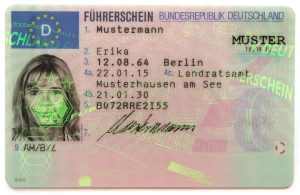
Theory Exam
The theory exam is a crucial step towards obtaining a German driver’s license, and understanding its format, content, and preparation strategies is essential for success. Join us as we explore everything you need to know about the theory exam:
Purpose of the Theory Exam: The theory exam evaluates your knowledge of German traffic rules, road signs, and driving principles. It ensures that applicants have a solid understanding of safe driving practices, traffic regulations, and the ability to make informed decisions on the road. The exam aims to promote responsible and knowledgeable drivers who can contribute to road safety.
Exam Format: The theory exam consists of multiple-choice questions presented on a computer. The number of questions and the required passing score vary depending on the license category. The questions cover a wide range of topics, including traffic signs, right-of-way rules, speed limits, and driving techniques. It is essential to answer the questions accurately and efficiently within the allotted time.
Preparation Strategies: To increase your chances of success in the theory exam, consider the following preparation strategies:
– Study Official Materials: Use the official driving theory books, available in multiple languages, to familiarize yourself with the content covered in the exam. These materials provide comprehensive information on traffic rules and regulations.
– Online Resources: Utilize online resources, such as practice exams and interactive quizzes, to reinforce your knowledge and improve your understanding of the subject matter.
– Join a Driving School: Enroll in a reputable driving school that offers theory exam preparation courses. Experienced instructors can guide you through the exam content, provide practical tips, and help you gain confidence.
– Practice Time Management: During your preparation, practice answering questions within the allocated time to simulate the exam environment and improve your speed and accuracy.Taking the Exam: n the day of the theory exam, arrive early to familiarize yourself with the testing center and the exam process. Follow the instructions provided by the exam proctor, read each question carefully, and choose the most appropriate answer based on your knowledge. Remember to manage your time effectively to complete all the questions within the given timeframe.
Exam Results and Retakes: After completing the theory exam, you will receive your results immediately. If you pass the exam, you can proceed to the next steps of obtaining your driver’s license. In case you do not pass, you can retake the exam after a specific waiting period. Use the experience to identify areas that require further study and preparation.
German Driver's License and Others for Sale
-
Out of stock
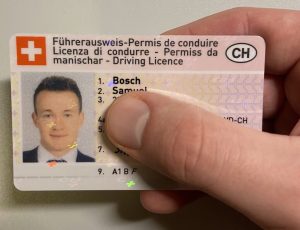 $775.00Rated 5.00 out of 5 based on 10 customer ratings
$775.00Rated 5.00 out of 5 based on 10 customer ratingsHaving a Swiss driver's license is essential for individuals who...
-
Out of stock
 $2,200.00Rated 5.00 out of 5 based on 4 customer ratings
$2,200.00Rated 5.00 out of 5 based on 4 customer ratingsGet behind the wheel with confidence - the Polish Driver's...
-
Out of stock
 $800.00Rated 5.00 out of 5 based on 6 customer ratings
$800.00Rated 5.00 out of 5 based on 6 customer ratingsBuy Norwegian Driver's online from the best producers on the...
-
Out of stock
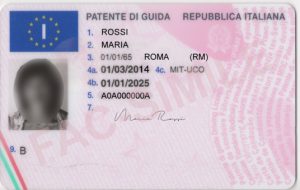 $800.00Rated 5.00 out of 5 based on 5 customer ratings
$800.00Rated 5.00 out of 5 based on 5 customer ratingsDrive the Italian way with confidence - the Italian Driver's...
-
Out of stock
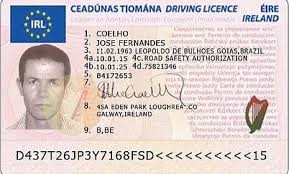 $850.00Rated 5.00 out of 5 based on 4 customer ratings
$850.00Rated 5.00 out of 5 based on 4 customer ratingsThe Irish Driver's License is your ticket to safe and...
-
Out of stock
 $850.00Rated 5.00 out of 5 based on 4 customer ratings
$850.00Rated 5.00 out of 5 based on 4 customer ratingsThe German driver's license is a highly-secure and government-issued document...
-
Out of stock
 $750.00Rated 5.00 out of 5 based on 2 customer ratings
$750.00Rated 5.00 out of 5 based on 2 customer ratingsGet on the road to freedom with the French driver's...
-
Out of stock
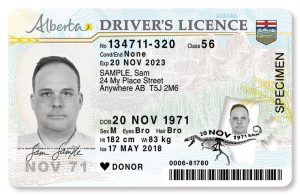 $850.00Rated 5.00 out of 5 based on 5 customer ratings
$850.00Rated 5.00 out of 5 based on 5 customer ratingsDrive with confidence and freedom with the Canadian driver's license...
-
Out of stock
 $850.00Rated 5.00 out of 5 based on 6 customer ratings
$850.00Rated 5.00 out of 5 based on 6 customer ratingsThe British driver's license is a secure and reliable document...
-
Out of stock
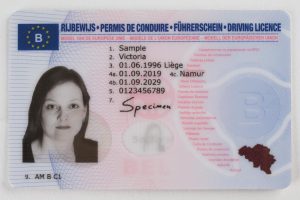 $750.00Rated 5.00 out of 5 based on 12 customer ratings
$750.00Rated 5.00 out of 5 based on 12 customer ratingsThe Belgian driver's license is a highly secure and reliable...
-
Out of stock
 $800.00Rated 5.00 out of 5 based on 7 customer ratings
$800.00Rated 5.00 out of 5 based on 7 customer ratingsThe Australian driver's license is a highly secure and reliable...
-
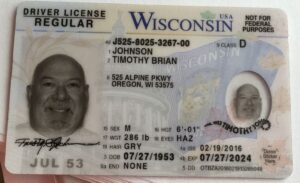 $800.00Rated 5.00 out of 5 based on 7 customer ratings
$800.00Rated 5.00 out of 5 based on 7 customer ratingsHigh-quality fake US driver's licenses, available in different states and...
Practical Driving Lessons
Practical driving lessons are crucial for gaining hands-on experience and becoming a safe driver:
Purpose of Practical Driving Lessons: Practical driving lessons are designed to equip aspiring drivers with the necessary skills and confidence to safely navigate the roads. These lessons provide hands-on experience in various driving situations, including urban areas, highways, and parking, while emphasizing proper techniques, defensive driving, and adherence to traffic rules. The guidance of a certified driving instructor plays a crucial role in shaping you into a competent and responsible driver.
Choosing a Driving School: Selecting a reputable driving school is vital to ensure quality instruction and a positive learning experience. Consider factors such as the school’s reputation, instructor qualifications, lesson structure, and cost. Reading reviews and seeking recommendations from friends or family can help you make an informed decision. A good driving school will provide a structured curriculum tailored to your needs, helping you progress steadily towards your goal.
Lesson Structure and Progression: Practical driving lessons typically follow a structured curriculum, starting with the basics and gradually advancing to more complex driving scenarios. Your instructor will guide you through each lesson, focusing on specific skills such as steering control, braking, accelerating, lane changing, and defensive driving techniques. As you gain proficiency, the lessons will expand to cover different road types, traffic situations, and specific challenges you may encounter on your driving journey.
In-Car Instruction and Guidance: During your practical driving lessons, you will have the opportunity to practice driving under the supervision of a certified instructor. They will provide guidance, correct any mistakes, and offer valuable feedback to help you improve your skills. Instructors may use dual-control vehicles, allowing them to take control if necessary, ensuring your safety throughout the learning process. Remember, every lesson is an opportunity to refine your driving abilities and build confidence on the road.
Progress Evaluation and Feedback: Your driving instructor will assess your progress regularly and provide constructive feedback. They will highlight your strengths and areas for improvement, helping you focus your efforts on specific skills that need refinement. Embrace this feedback as an opportunity for growth and learning. Practicing outside of lessons, when accompanied by a licensed driver, can further enhance your driving skills and reinforce the lessons learned.
Practical Driving Test: Once you have completed the required number of practical driving lessons and your instructor believes you are ready, you can proceed to the practical driving test. This test evaluates your ability to apply your driving skills in real-world scenarios. It is important to practice diligently, review the rules of the road, and refine your techniques to increase your chances of passing the test successfully.
Practical Driving Test
The practical driving test assesses your driving skills and ability to apply traffic rules in real-time situations:
Purpose of the Practical Driving Test: The practical driving test evaluates your ability to apply your driving skills and knowledge in real-world traffic situations. It assesses your competency in various driving maneuvers, adherence to traffic rules, defensive driving techniques, and overall road safety. The test aims to ensure that you are a capable and responsible driver, capable of safely navigating the roads.
Test Format and Evaluation: The practical driving test consists of a driving examination conducted by a certified examiner. The test typically includes a combination of driving scenarios, such as urban driving, highway driving, parking maneuvers, and possibly emergency situations. The examiner will assess your performance based on predetermined evaluation criteria, including observation skills, signaling, lane positioning, speed management, and decision-making abilities. It is important to demonstrate confidence, attentiveness, and adherence to traffic rules throughout the test.
Preparation Strategies: To increase your chances of success in the practical driving test, consider the following preparation strategies:
– Practice Regularly: Continue practicing your driving skills in various traffic conditions and environments. Seek opportunities to gain experience and confidence behind the wheel.
– Review Traffic Regulations: Familiarize yourself with German traffic regulations, road signs, and right-of-way rules. Ensure you understand and can apply them correctly during the test.
– Mock Driving Tests: Take advantage of mock driving tests offered by driving schools or online platforms. These simulations can help you become familiar with the test format and identify areas that require improvement.
– Timing and Observation: Pay attention to your observation skills, use mirrors effectively, and be aware of your surroundings. Practice timely signaling, lane changes, and merging maneuvers.
– Defensive Driving Techniques: Learn and adopt defensive driving techniques such as maintaining a safe following distance, anticipating potential hazards, and adjusting your driving behavior accordingly.Test Day Tips: On the day of your practical driving test, keep the following tips in mind:
– Arrive Early: Arrive at the testing location well in advance to familiarize yourself with the environment and calm any nerves.
– Be Prepared: Bring all the required documents, including your identification, theory exam certificate, and any other necessary paperwork.
– Relax and Focus: Stay calm and focused during the test. Listen carefully to the examiner’s instructions, and ask for clarification if needed. Remember to breathe and trust in your abilities.- Test Results and Next Steps: After completing the practical driving test, the examiner will provide you with immediate feedback on your performance. If you meet the required standards, you will receive a successful result and be one step closer to obtaining your German driver’s license. In case you do not pass, the examiner will provide detailed feedback on areas that need improvement. Use this feedback constructively to further enhance your driving skills and prepare for a future test.
Required Documents
Whether you’re applying for a job, renting an apartment, or starting a new business, having the right documents readily available is crucial for a smooth and hassle-free process:
Identity Verification Documents:When it comes to identity verification, the following documents are commonly required:
– Valid Identification Card: A government-issued identification card, such as a driver’s license, passport, or national ID card, is typically required to confirm your identity.
– Proof of Address: Documents like utility bills, bank statements, or a lease agreement, which display your name and current address, are often required to verify your residency.Employment-related Documents:For employment-related transactions, you may need the following documents:
– Resume or CV: A well-prepared resume or curriculum vitae (CV) highlighting your education, work experience, and relevant skills is essential when applying for a job.
– Cover Letter: A cover letter introduces yourself and explains your interest in a specific position. It should be tailored to the job you’re applying for.
– Academic and Professional Certificates: Copies of your academic degrees, diplomas, and professional certifications help demonstrate your qualifications and skills.
– References: Contact information for professional references who can vouch for your abilities and character may be required by potential employers.Rental and Real Estate Documents: When renting or purchasing a property, the following documents are commonly needed:
– Rental Application: A completed rental application form, including personal information, employment details, and references, is often required by landlords or property management companies.
– Proof of Income: Documents such as pay stubs, employment contracts, or tax returns provide evidence of your financial stability and ability to pay rent.
– Rental History: A rental history report, recommendation letters from previous landlords, or proof of on-time rental payments can strengthen your application.
– Mortgage or Loan Documents: When purchasing a property, you’ll need to provide financial documents, such as bank statements, tax returns, and employment verification, to support your mortgage or loan application.Business-related Documents: For starting a new business or conducting business transactions, consider the following documents:
– Business Plan: A well-crafted business plan outlines your business goals, strategies, and financial projections. It is essential when seeking investors or applying for business loans.
– Business License: Depending on your location and the nature of your business, you may need to obtain a business license or permits to operate legally.
– Tax Documents: Business tax identification numbers, tax registration certificates, and other tax-related documents are necessary for compliance with tax regulations.
– Contracts and Agreements: Drafting and maintaining contracts, such as client agreements, partnership agreements, or vendor contracts, ensure clear expectations and protect your business interests.
Where to Buy a German Driver's License on the Dark Web
If you are looking to buy fake documents on the dark net, Darknetdocuments.com is known to provide the best novelty documents with very high quality which you won’t find anywhere else on the dark web. Contact us now for best deals through any of the following contact information;
- Whatsapp: +1 415 937 8544
- Telegram: +1 415 937 8544
Conclusion
Obtaining a German driver’s license involves several steps, including understanding the license categories, meeting the basic requirements, passing the theory exam, completing practical driving lessons, and passing the practical driving test. By following this overview of the application process and gathering the necessary documents, you can embark on your journey to becoming a licensed driver in Germany.
If you have further questions or need more detailed information, please explore the other sections of our website or reach out to us directly. We are here to support you throughout your driver’s license application process.
Sources:
In order to come up with this beautiful peace of write up, we read and copied some contents from other amazing writers/bloggers. Below is a list of sources we used;
